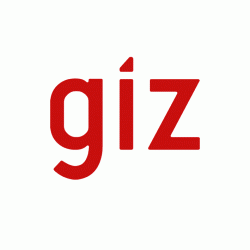
Primary tabs
Deutsche Gesellschaft für Internationale Zusammenarbeit (GIZ)
The Deutsche Gesellschaft für Internationale Zusammenarbeit (GIZ) GmbH is a global service provider in the field of international cooperation for sustainable development and international education work, with 24,977 employees. GIZ has over 50 years of experience in a wide variety of areas, including economic development and employment, energy, and the environment, and peace and security. Our business volume is around 3.7 billion euros. As a public-benefit federal enterprise, GIZ supports the German Government – in particular the Federal Ministry for Economic Cooperation and Development (BMZ) – and many public and private sector clients in around 120 countries in achieving their objectives in international cooperation. With this aim, GIZ works together with its partners to develop effective solutions that offer people better prospects and sustainably improve their living conditions.
learn more on GIZ in Lebanon Lebanon (giz.de)
Press Releases
There is no content in this section yet.
Jobs
Projects
There is no content in this section yet.